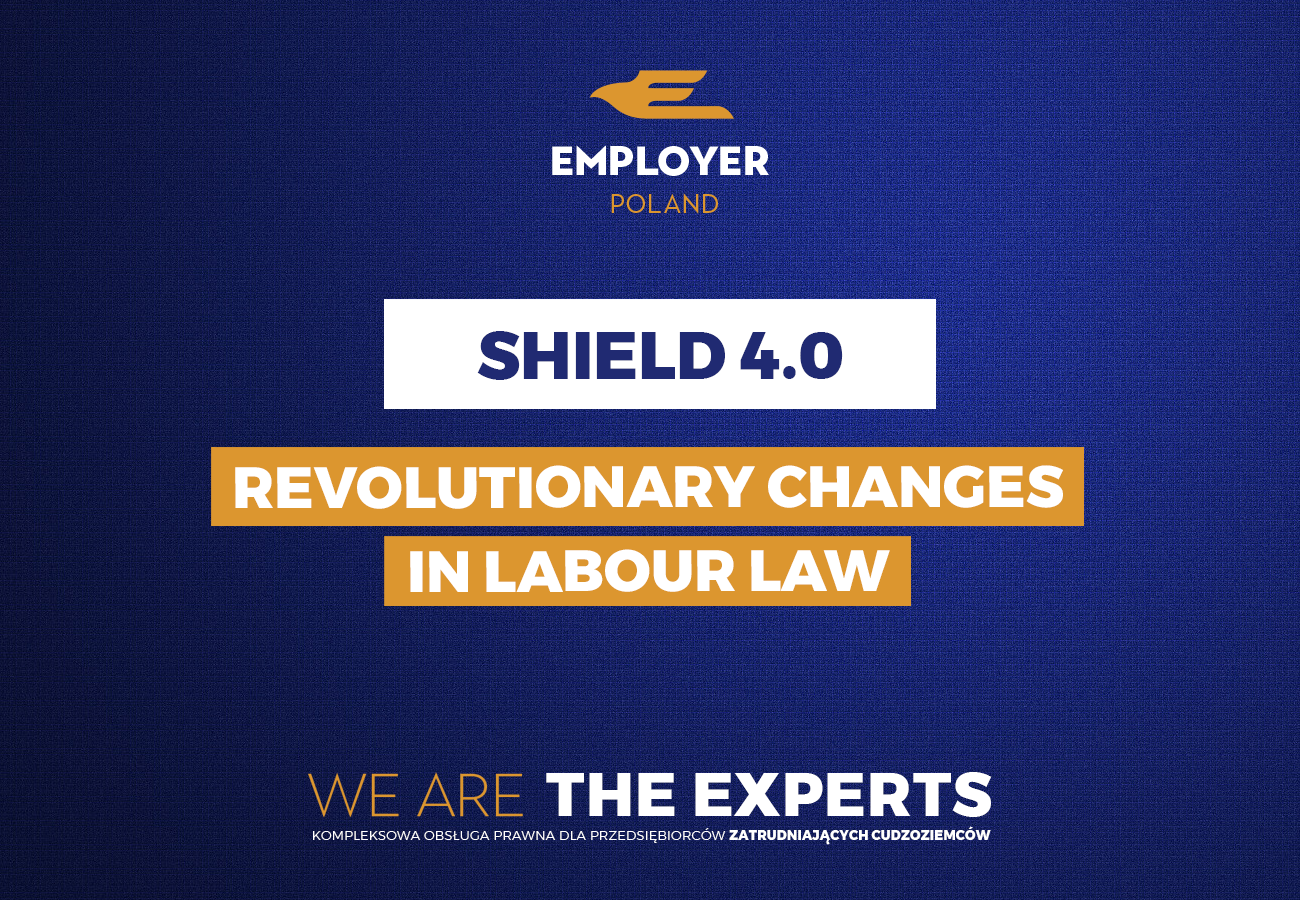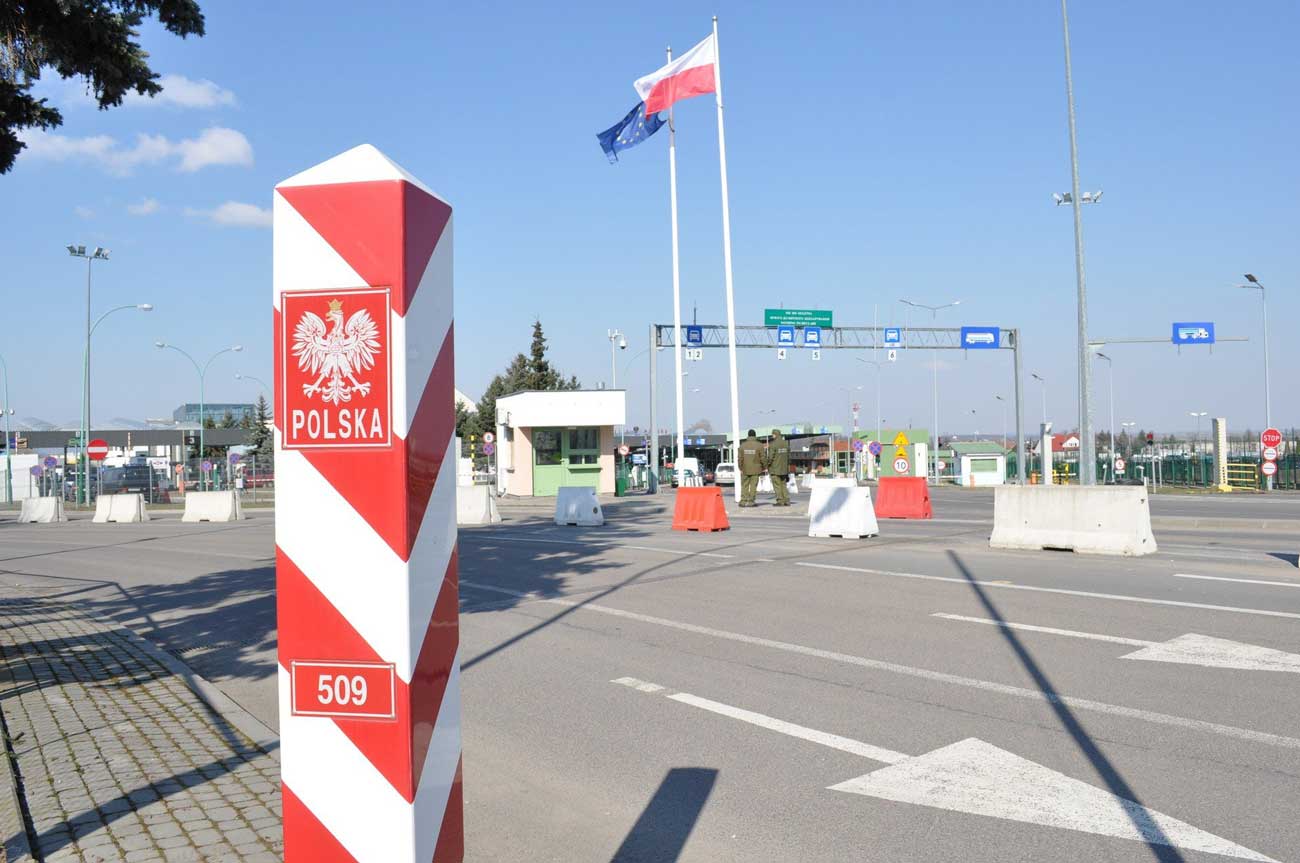
Legalisation of a foreigner’s stay during the current epidemic state
Pursuant to the regulation of the Minister of Health of 20 March 2020 regarding the announcement of the state of the epidemic in the territory of the Republic of Poland (Dz. U. poz. 491, as amended) in the period from 20 March 2020 until further notice in the territory of the Republic of Poland an epidemic state has been announced in connection with SARS-CoV-2 virus infection. Previously, pursuant to the repealed regulation of the Minister of Health of 13 March 2020 regarding the announcement of an epidemic emergency in the Republic of Poland (Dz.U. 2020 poz. 433), epidemic threat state was effective in the Republic of Poland in the period from 14 March 2020.
No doubt, the current epidemic state significantly hinders the procedure for legalizing the stay and employment of foreigners residing in Poland. Many entrepreneurs emphasize that from day to day the situation is getting more and more difficult due to the fact that some employees left for their home countries, and in the case of the rest of employees, in particular from Ukraine, work permits or declarations on entrusting work to a foreigner expire. The situation is not improved by the fact that due to the reinstated border controls and restrictions imposed when crossing the border, a significant number of bus, rail and air connections were suspended. Moreover, the state of the epidemic causes increasing uncertainty among employees. In the light of the above, there is no doubt that it is necessary to take action to introduce administrative facilities for foreigners who are staying, working or would like to work in Poland.
In most Voivodeship Offices, direct customer service in all matters related to foreigners has been suspended until further notice. Arranged time limits to file applications and correct formal deficiencies, hearings and file reviews were cancelled. In this situation, many foreigners are asking themselves whether their stay in the current situation is legal and is there any chance to legalise their stay or obtain a work permit in Poland.
First, applications and documents regarding the legalization of stay of foreigners, applications for invitations, registration of EU citizens ‘stay, exchange of foreigners’ cards and other applications should be submitted by registered mail via the public operator (Poczta Polska). These applications should be sent at the post office at the latest on the last day of legal stay; further instructions from the office should be awaited. As practice of many offices shows, administrative decisions already issued are sent to foreigners by post.
Sending the application to the voivodeship office via Poczta Polska (which is the designated operator in the meaning of the Postal Law act of 23 November 2012) before the expiry of the period of legal stay, guarantees that the application time limit will be met. It should be emphasized that the legality of a foreigner’s stay in Poland during the pending administrative procedure results from the fact of submitting an appropriate application within the statutory period, and not from the fact that the foreigner has a stamp in the passport or a certificate issued by the office confirming submission of the application. In addition, voivodeship heads, after the restoration of direct customer service, will call for personal appearance in the office, when required by law.
LEGALISATION OF THE FOREIGNER’S STAY WHO CANNOT LEAVE POLAND DUE TO THE EPIDEMIC STATE
Foreigners who, due to the state of the epidemic, cannot currently leave the territory of the Republic of Poland, in order to avoid illegal stay, may submit applications for visa extension or for temporary residence permit due to circumstances requiring a short stay.
It is worth reminding here that temporary residence permit due to circumstances requiring a short-term stay of a foreigner on Polish territory can be granted to a foreigner who stays in this territory if:
- he/she is obliged to appear in person before the Polish public authority, or
- his/her unique personal situation requires the foreigner’s presence in the territory of the Republic of Poland, or
- the interest of the Republic of Poland requires the presence of a foreigner in the territory of the Republic of Poland.
However, the application for a temporary residence permit due to circumstances requiring a short stay, as well as applications for visa extension, should be sent to the competent office during the legal stay of the foreigner in Poland. In this case, as stated above, the foreigner’s stay during the pending administrative procedure will be considered legal.
EXTENSION OF STAY IN VISA-FREE TRAVEL
Many questions relate to situations in which a foreigner stays in Poland on the basis of visa-free travel and whether in this case there is any possibility of extending his stay in visa-free travel to avoid illegal stay in the territory of Poland. This issue is currently of particular importance due to the fact that a foreigner may be subject to compulsory quarantine and will not be able to leave Poland during the visa-free regime. Moreover, the reinstatement of border controls and the significantly extended time necessary to cross the border may prevent the foreigner from leaving the country during the period when he is still legally staying in the territory of the Republic of Poland. I know from experience that even an hour late delay in crossing the border results in an illegal stay in the territory of the Republic of Poland and thus the issuing of a decision obliging the foreigner to return and a ban on re-entry into the territory of the Republic of Poland and other Schengen States.
A foreigner who stays in the territory of the Republic of Poland on the basis of an international agreement on the abolition of the visa requirement or to whom the partial or total abolition of the visa requirement applies, may, in justified cases, extend the period of stay in the territory of the Republic of Poland by another 90 days, if such a possibility is provided for in visa waiver agreements. Currently agreements with Brazil, Argentina, Chile, Honduras, Costa Rica, Nicaragua, Singapore and Uruguay provide for this, whereas the problem particularly concerns Ukrainian citizens. What can be done in this case?
The best option is for a foreigner to submit an application for extension of the period of stay under visa-free travel to Poland to the voivode head competent for the place of stay of the foreigner, not later than on the last day of his legal stay in this territory as part of visa-free travel. The request must be justified.
EXTENSION OF SCHENGEN VISA
A foreigner who is staying in the territory of the Republic of Poland may have his/her period of validity of a Schengen visa issued by the Polish authority or body of another Schengen State extended, valid also in the territory of Poland or for the length of stay covered by this visa, if:
- has/she has demonstrated that due to force majeure or for humanitarian reasons it is not possible for him/her to leave the territory of the Member States before the expiry of the visa or before the end of the visa allowed stay, or
- if he/she provides proof of valid personal reasons justifying the extension of the period of validity or the duration of stay.
The concept of force majeure has not been defined by law. However, in legal practice, force majeure is an external event, impossible (or almost impossible) to foresee, the effects of which cannot be prevented. These premises should appear together. Thus, a foreigner who cannot leave the territory of Poland due to the state of the epidemic and therefore would like to extend the period of his visa, may refer to an event of force majeure, which is the outbreak of the coronavirus epidemic. However, it should be remembered that each application is assessed individually.
The period of stay in the territory of the Republic of Poland on the basis of an extended visa should not exceed the maximum period of stay provided for a specific type of visa, i.e. 90 days in a 180-day period for a Schengen visa.
EXTENSION OF A NATIONAL VISA
A foreigner who is staying in the territory of the Republic of Poland may have the period of validity of the issued national visa or the period of stay covered by this visa extended if the following conditions are jointly met:
- it is justified by an important professional or personal interest of a foreigner or, for humanitarian reasons, he/she may not leave this territory before the expiry of the national visa or before the end of the authorized period of stay covered by the visa;
- events that are the reason for applying for the extension of a national visa occurred beyond control of the foreigner and were not foreseeable on the day of submitting the application for a national visa;
- there are no circumstances for which a national visa should be refused.
A national visa can be extended once. In addition, in accordance with applicable law, if the time limit for submitting an application for the extension of a Schengen visa or a national visa has been met and the application has no formal deficiencies or the formal deficiencies have been corrected in time, the foreigner’s stay in the territory of the Republic of Poland shall be considered legal from the date of submission of the application until the date on which the decision to extend the Schengen visa or national visa becomes final.
WHAT FACILITATIONS DO THE POLISH AUTHORITIES OFFER FOR FOREIGNERS?
Pursuant to the premises of the draft act amending the act on special solutions related to the prevention, counteracting and combating of COVID-19, other infectious diseases and crisis situations caused by them, as well as some other acts, if the time limit for submitting the application for a temporary residence permit, referred to in Article 105 paragraph 1 of the act of 12 December 2013 on foreigners (Dz. U. z 2020 r. poz. 35), falls in during the period of epidemic emergency state, and in the case of an epidemic state being announced – during its duration, announced in connection with the SARS-CoV-2 virus infection, this time limit is extended until the end of the 30th day following the date of cancellation of the epidemic emergency or epidemic state, respectively.
In addition, the draft act assumes that the stay of a foreigner in the territory of the Republic of Poland during the extended period referred to above will be considered legal in the meaning of the act on foreigners if the foreigner submits the application within this period. These provisions would also apply accordingly to the dates relating to permanent residence permits, long-term resident’s European Union residence permits, as well as to the time limit for applying for an extension of the period of stay as part of visa-free travel within the territory of the Republic of Poland.
According to the presented draft, the reference point in calculating the dates of legality of stay is the period of effectiveness of the epidemic state and the epidemic threat state.
Pursuant to the regulation of the Minister of Health of 20 March 2020 on the announcement of the state of the epidemic in the Republic of Poland, in the period from 20 March 2020 until further notice in the Republic of Poland, the state of the epidemic in connection with SARS-CoV-2 virus infection applies. Earlier, in the period from 14 March 2020, an epidemic threat in the territory of the Republic of Poland was announced in connection with the SARS-CoV-2 virus infection.
According to the draft act, if the last day of the period of stay of a foreigner on the basis of a national visa falls during the period of epidemic emergency state, and in the case of an epidemic state announcement – during its period, announced in connection with the SARS-CoV-2 virus infection, the period of stay on the basis of this visas and the period of validity of this visa shall be extended by law until the end of the 30th day following the date of cancellation of the epidemic emergency or epidemic state, respectively. In addition, in the above case, no new visa sticker will be affixed to the foreigner’s travel document.
Finally, in the prepared draft act there are analogous entries regarding temporary residence permits, i.e. if the last day of the period of validity of the temporary residence permit falls during the period of epidemic emergency state, and in the case of an epidemic state announcement – during its effectiveness, announced in connection with the SARS-CoV-2 virus infection, the period of validity of this authorization is extended by law until the end of the 30th day following the date of cancellation of the epidemic emergency or epidemic state, respectively. In this case, no residence card is issued or replaced.
However, it is only a draft act and the proposed regulations have not yet entered into force. Thus, every foreigner must diligently observe the validity of residence permits so that they can stay and work legally in the territory of the Republic of Poland. I will keep you updated on the changes introduced to the provisions related to the legality of stay and employment of foreigners in Poland.
Legal state as at 25 March 2020
Sources:
- the act of 2 March 2020 on special solutions related to the prevention, counteraction and combating covid-19, other infectious diseases and crisis situations caused by them (Dz.U. 2020 poz. 374);
- the draft act amending the act on special solutions related to the prevention, counteracting and combating COVID-19, other infectious diseases and crisis situations caused by them, and some other acts (official website https://www.sejm.gov.pl);
- the regulation of the Minister of Health of 20 March 2020 regarding the announcement of the state of the epidemic in the territory of the Republic of Poland (Dz. U. poz. 491, as amended);
- the act of 12 December 2013 on foreigners (Dz. U. z 2020 r. poz. 35);
- official website: https://www.strazgraniczna.pl/;
- official website: https://www.gov.pl/web/mswia.
Author: Trainee Attorney-at-Law Marta Szczepanowska
Editorial Supervision: Attorntey-at-Law Paweł Tokarski








